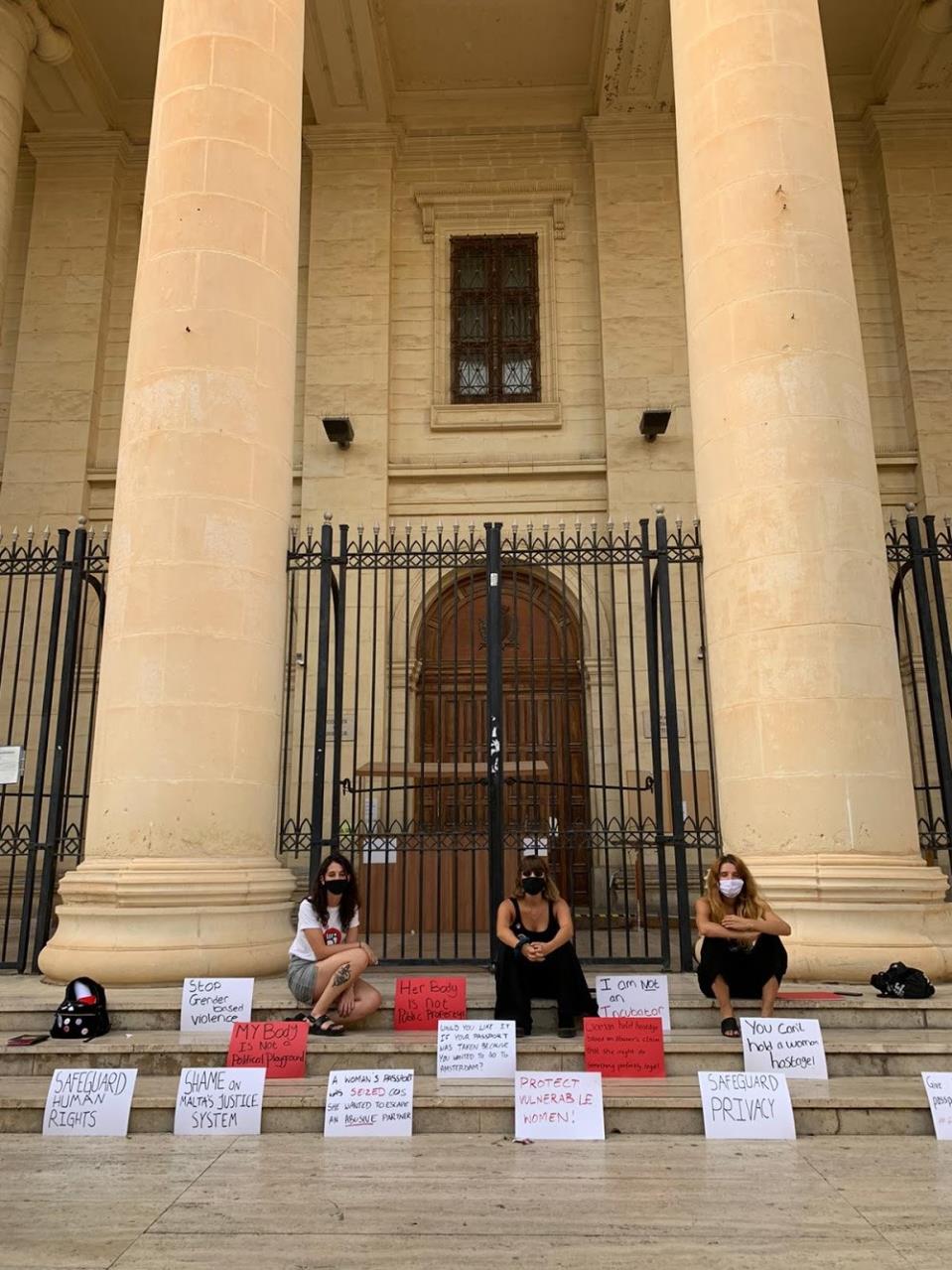Do you think what happened to Sarah Everard could happen in Malta?
In Malta, we do ultimately have a long and gruesome history of femicide. Just last year, we had the murder of Chantelle Chetcuti. In February of this year, a woman filed a report against her partner and despite that, he was able to show up at her house and stab her and her son. This is recent history, it's not something we haven't seen.
The biggest difference is that in Malta we see a lot of intimate partner violence. What stands out about Sarah Everard's case is that she was walking in the street and her attacker was unknown to her. It's so frightening yet so familiar because she did a lot of things that us, as women, were ingrained in us. She took a longer route to be in a better lit area; she wore running shoes; she wore bright clothing; she called her boyfriend for 14 minutes while she was walking home to ensure her safety. And yet despite all of these things, she was murdered. This brings us to this frightening realisation that no matter what we do and how we try to prevent it, we are still at risk.
What we're facing here is an element of misogyny, but also the fact that her perpetrator was a police officer - someone who is in the line of work to protect others. Here in Malta, we've seen cases of police officers having domestic violence records and not only being held accountable, but applying to be commissioner. It's a reality that perpetrators are not only not brought justice, but sometimes even empowered. This tells us that we are less important, that we are not worthy of justice. Sarah Everard's case tells us that police officers are not outside of patriarchy, which is why we do need to clamp down on how we are hiring police officers and employing them. It's a very deep-rooted issue in misogyny and patriarchy.

Since 2010, there have been 1,300 cases of sexual offense that have been reported to the police in Malta. Why do you think people are hesitating to come forward and report sexual offenses to the police?
I think that first and foremost, we should begin with the element of belief. When victims of sexual violence come forward, we do have a major issue that they are not believed; that they are blamed for their own attacks. Their clothing is brought up and their history which is irrelevant to a case is brought up to try and slander them instead of the perpetrator. We are more ready to assume that the victim is lying than the perpetrator is lying. This is a major issue because if you have been assaulted and you need to relive that trauma by reporting it and going through a court case and having to constantly reiterate your experience, it's very debilitating and traumatic to not be believed.
Aside from that, institutionally, we do have a time bar. In Malta, the time bar prevents victims of sexual abuse from coming forward later in life because the law prohibits it. This is absolutely unjustified because many victims can only speak about it later in life and they are not to be blamed for that. No amount of time makes their attack irrelevant.
On top of that, a lot of victims of sexual violence are not given justice. Let's take, for example, a case in 2019 where a man attacked and ripped off a woman's clothes. He got an 18 month suspension. That's just one case; or where a man who sexually abused his daughters got 4 years in prison. From a victim's point of view, they say 'is it worth it for me to come forward, to put myself through trauma if this is what I'm going to get? Lack of justice? Not being believed?'
How do you suggest that institutions start taking steps to ensure the safety of women? You mentioned the time bar, for example, do you think this should be removed completely?
The time bar is something that definitely needs to be removed for perpetrators to be brought to justice. Many victims only garner the courage or strength to come forward later in life. It's unfair that the opportunity to allow themselves to bring their perpetrators to justice is ultimately taken away from them.
With the new domestic violence unit, we are seeing some changes but the process is slow. Since most attacks are ultimately from intimate partner violence, I do think it is necessary that a sex offender registry is made public and domestic abuse records are public so that future partners know that information. They have a right to know what they are getting involved with. I believe that would prevent a lot of violent situations for women before it is too late.
Ultimately, we do have certain things in place to prevent violent situations, but it's nowhere near enough. And I do think that when it comes to sentencing perpetrators, we do tend to go on the lighter side. In some cases, they end up going through such a long and gruelling court process just to be brought to an 18-month suspended sentence. It's unacceptable.

Do you think that transgender women, women of colour and gender non-binary individuals face tougher challenges in terms of feeling secure on the island?
Of course. Trans women especially face disproportionate amounts of violence. They are wrongly misconstrued as impostors and they absolutely are not. The fact that they disproportionately experience violence makes it all the more urgent that they require protection.
Non-binary individuals are included because ultimately anyone who is outside of the 'cis-white-straight man' does face an experience that is drastically different and drastically more difficult. It's a case of intersectionality. When you consider violence and hate crime, anyone outside of this bracket is much more at risk. So when we consider women's issues, we are not just considering women's issues, but we are considering non-binary communities, the transgender community, the LGBTI community, legal status and disability.
Is there anything we can do on a community level to ensure the safety of women?
Yes. First of all, I do believe primarily that violence against women has been treated like an issue for women for too long; that it is something that we need to take care of; that it's our responsibility that we don't get raped, and we don't get attacked.
We know that the vast majority of perpetrators are men, and it has become apparent that men are not doing enough; that while they may not be raping people, they are not calling out the rape culture that they are confronted with. This is a problem. Being complicit is such a major issue that it gives perpetrators the feeling that what they are doing is not wrong; that it's not outside of our societal agenda. That enables them. Why is it that rape jokes are laughed at? This is all part of a greater culture of violence against women being normalized. While you might not take that rape joke as something that enables you, a rapist in the room could.
You don't know who exactly you are around because perpetrators are people you trust. They're people in your home; they're people in your family. The effects of coming forward are drastic. It's not as simple as 'cover yourself up' or 'take a better road home'. It's a lot deeper than that.
We have seen cases of sexual violence where women are covered from head to toe. It has absolutely nothing to do with clothing. Men do need to hold each other much more accountable and speak to each other about these issues. It's not just something you should brush under the rug because it's not your problem. It is your problem. It's more your problem than it is women's problem.